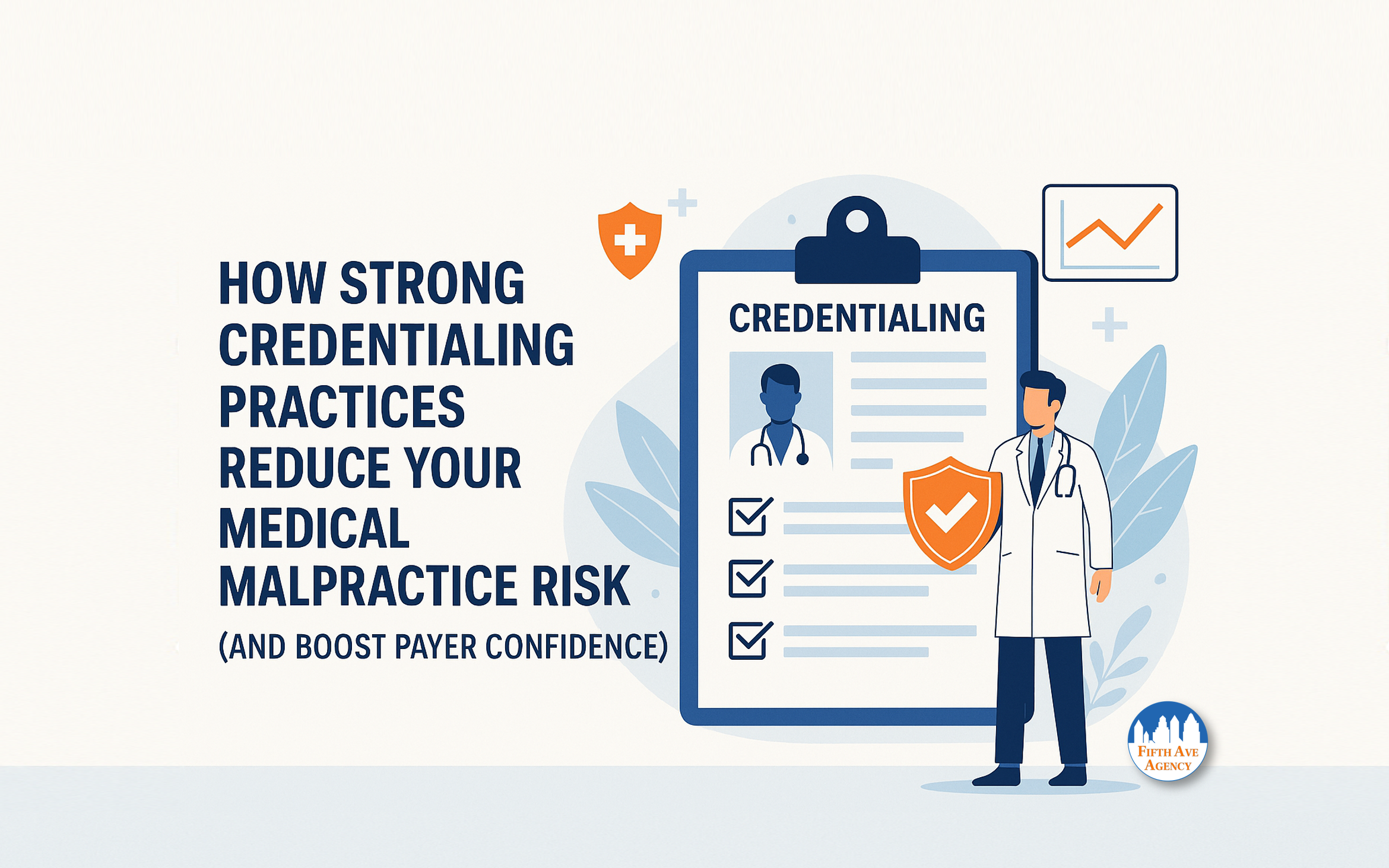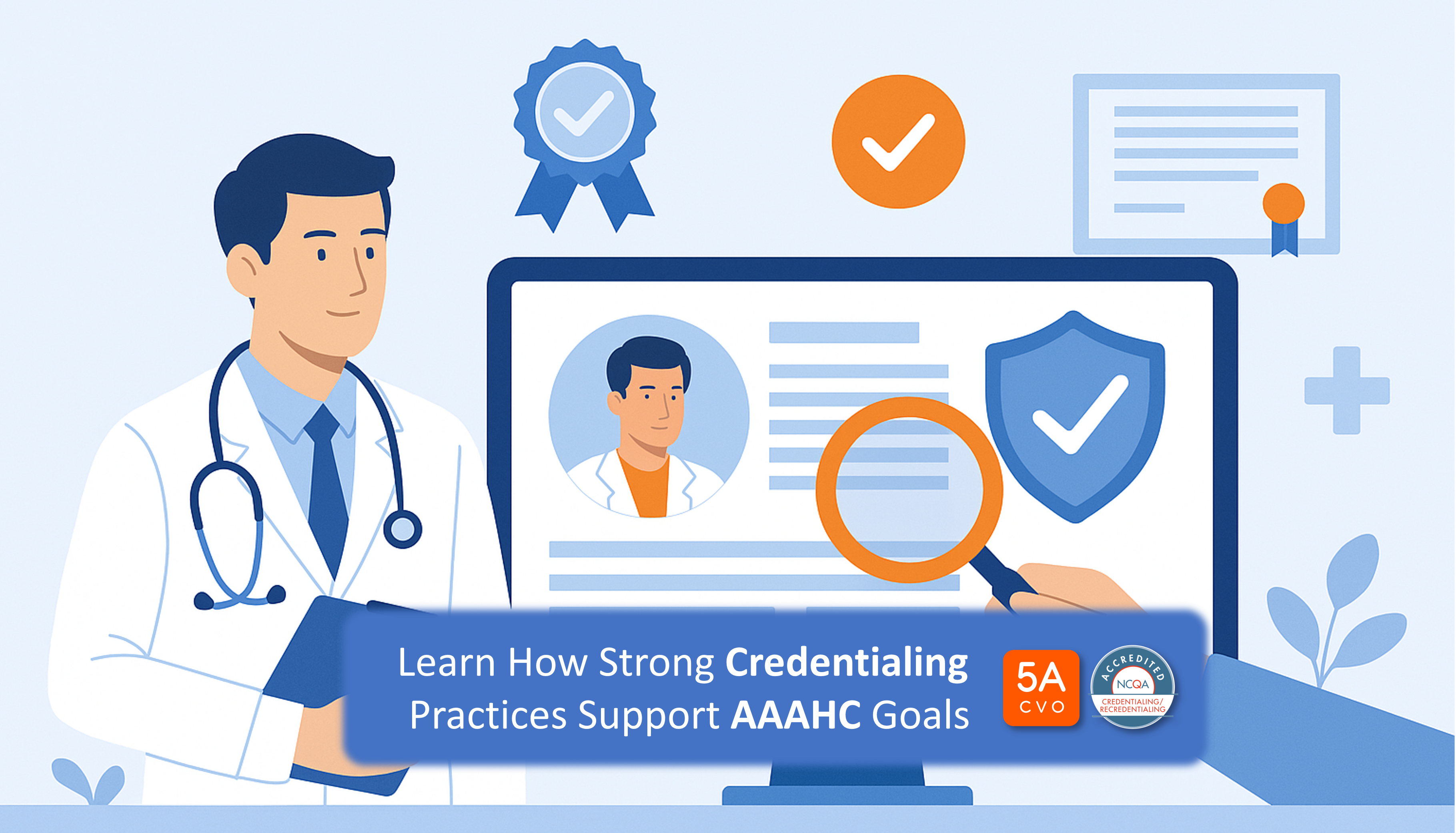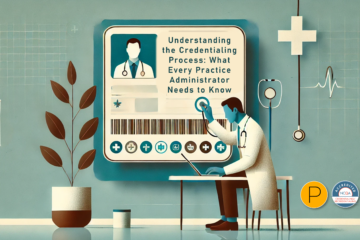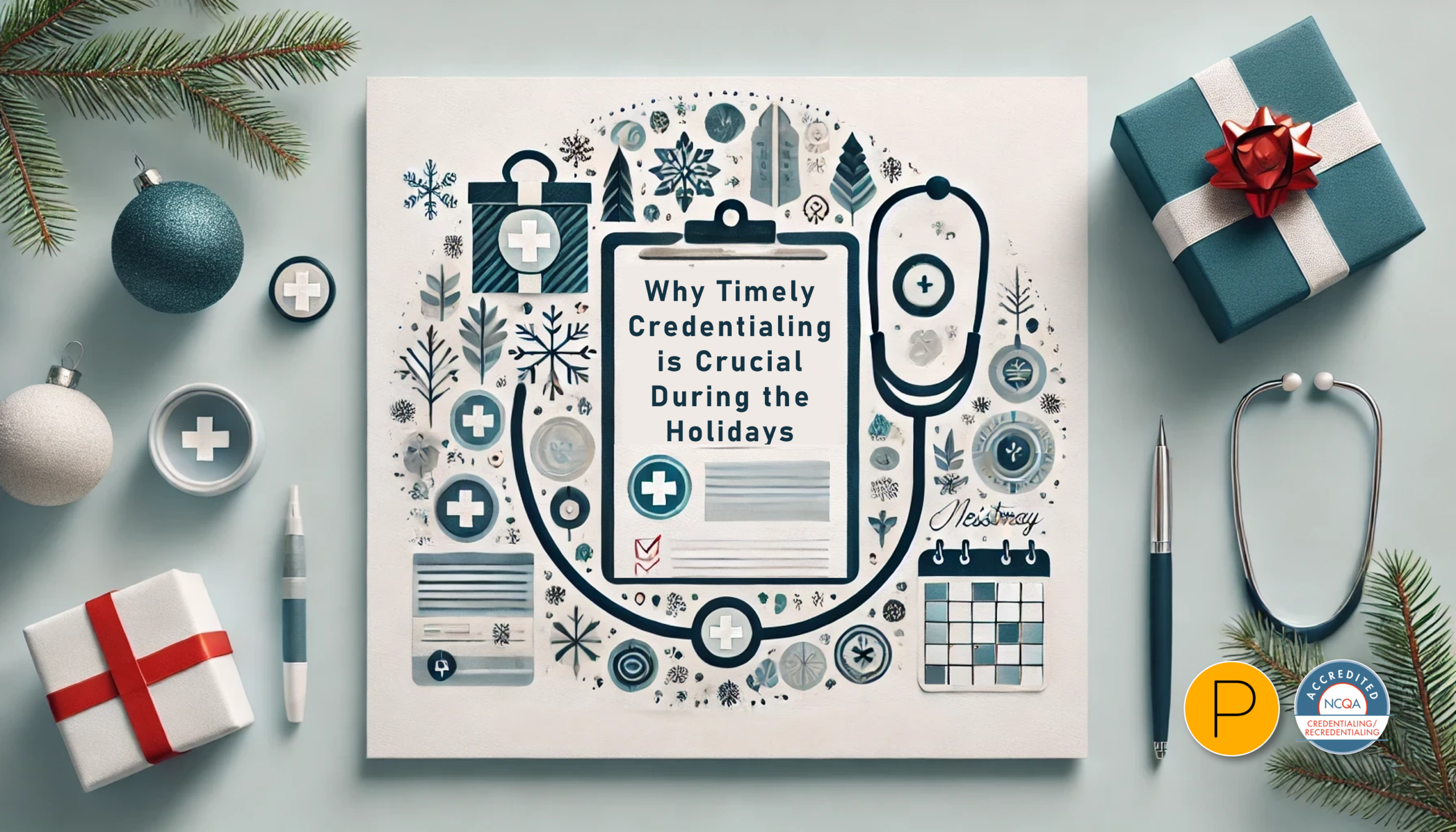Hiring a credentialing specialist is a critical step in ensuring your healthcare organization operates efficiently and remains compliant with industry regulations. Credentialing is a complex and specialized process that requires a professional who possesses the necessary qualifications and aligns with your organization’s culture and values.
This article will explore four key considerations when hiring a credentialing specialist: Culture, Experience, Education, and Professional Designations. These factors are crucial to finding the right fit for your team and ensuring a smooth credentialing process.
1. Culture: The Foundation of Success
When hiring a credentialing specialist, it is essential to evaluate how well the candidate’s cultural values align with your healthcare organization. Culture is the cornerstone that influences the effectiveness of teamwork, communication, and overall job satisfaction.
As James Collins states in his book Good to Great,
“Great vision without great people is irrelevant.“
Hiring a credentialing candidate whose personal and professional culture aligns with your corporate environment is more likely to result in seamless integration and positive contributions to your team.
A strong cultural fit reduces turnover and fosters a cohesive work environment. According to a Deloitte study, 94% of executives and 88% of employees believe that a distinct workplace culture is vital to business success. For example, Zappos’ culture-first hiring strategy led to a 75% reduction in employee turnover, demonstrating the significant impact of cultural alignment on organizational health.
You can find more details on this study in the Deloitte report titled “Core Beliefs and Culture,” which discusses these findings in depth.
Case Study: The Zappos Approach to Culture-First Hiring
Zappos’s approach is a compelling example of the importance of cultural alignment in hiring. The company is renowned for its solid and distinct culture, emphasizing customer service and employee happiness.
Zappos implemented a culture-first hiring strategy, ensuring all new hires aligned with the company’s core values. As a result, Zappos saw a 75% reduction in employee turnover, highlighting the significant impact that cultural fit can have on retention and overall organizational health.
For more detailed information, you can explore the case studies on Zappos’ cultural strategies from Titus Talent Strategies and Staff Management, which provide in-depth insights into how Zappos maintains its unique workplace culture and its impact on the business. Sources: Titus Talent Strategies
2. Experience: Tailoring Expertise to the Role
Experience is a critical factor in the hiring process, especially for specialized roles like credentialing. The required experience level can vary depending on the specific credentialing roles within your organization.
For entry-level positions, such as hiring a Credentialing Specialist, 0-3 years of credentialing or healthcare-related experience may be sufficient. These roles typically involve handling the more routine aspects of credentialing, such as verifying provider information, maintaining records, and ensuring compliance with basic standards. Hiring a credentialing candidate with minimal experience but a strong willingness to learn and grow within the organization can often lead to the employee excelling in these roles, provided they have the right cultural fit.

Importance of Experience and Tailoring Expertise to the Desired Role
The requirements for higher-level roles, such as Credentialing Managers or Directors, are far more stringent. These roles require 10-15+ years of specialized experience, including deep knowledge of the credentialing process, regulatory requirements, and industry best practices. A senior credentialing professional must be adept at navigating complex challenges, such as managing large-scale credentialing projects, implementing new processes, and leading a team.
The Importance of NCQA Experience in Credentialing
When hiring a credentialing specialist, it is crucial to consider candidates who have experience with NCQA (National Committee for Quality Assurance) standards. Credentialing specialists with NCQA experience bring a deep understanding of the complex regulatory requirements and best practices necessary to maintain accreditation.
This expertise is particularly valuable for healthcare organizations seeking to ensure compliance, reduce risks, and deliver high-quality care. An NCQA-experienced credentialing specialist can help streamline the credentialing process, minimize errors, and uphold the organization’s commitment to excellence in patient care.
The Role of Recommendations in Evaluating Experience
Recommendations play a crucial role in assessing a candidate’s experience. They can provide valuable insights into a candidate’s past performance, their ability to work within a team, and their potential for success in your organization. Strong recommendations can reinforce the candidate’s qualifications and offer real-world examples of how their experience has translated into tangible results.
When hiring for a credentialing role, particularly at the management level, it is crucial to seek out and carefully consider recommendations to gain a fuller picture of the candidate’s capabilities and fit within your organization.
3. Education: Balancing Degrees with Practical Experience
In today’s dynamic hiring environment, equivalent work experience is often considered a suitable substitute for a formal degree. For example, while a Bachelor’s degree may be desirable for many roles, an individual with substantial hands-on experience in credentialing might be equally qualified.
However, education still holds value, especially for more senior roles. A Master’s in Healthcare Management, for instance, could be highly relevant for a Credentialing Manager, equipping them with the advanced skills needed to manage complex credentialing processes. On the other hand, for lower-level roles, practical experience might be more critical than formal education.

Importance of Education and Balancing Degrees with Practical Experience
Research shows that while formal education provides a solid theoretical foundation, particularly in specialized fields like healthcare, experience often plays a critical role in applying this knowledge effectively. Certain healthcare roles, like those of doctors and nurses, require formal education due to the high-stakes nature of the work. However, in roles such as home health aides, practical experience can sometimes better predict job performance (Healthcare Staffing Manager) (Job Search | Indeed).
To balance these considerations, evaluating the specific needs of the role and the organization is essential. For example, while a candidate pursuing a Master’s degree in Healthcare Management might be an excellent fit for a Credentialing Manager position, hiring a credentialing specialist for an entry-level role might prioritize relevant hands-on experience over formal education.
4. Professional Designations: Validating Expertise
Professional designations are a strong indicator of a candidate’s expertise and dedication to the field of credentialing.
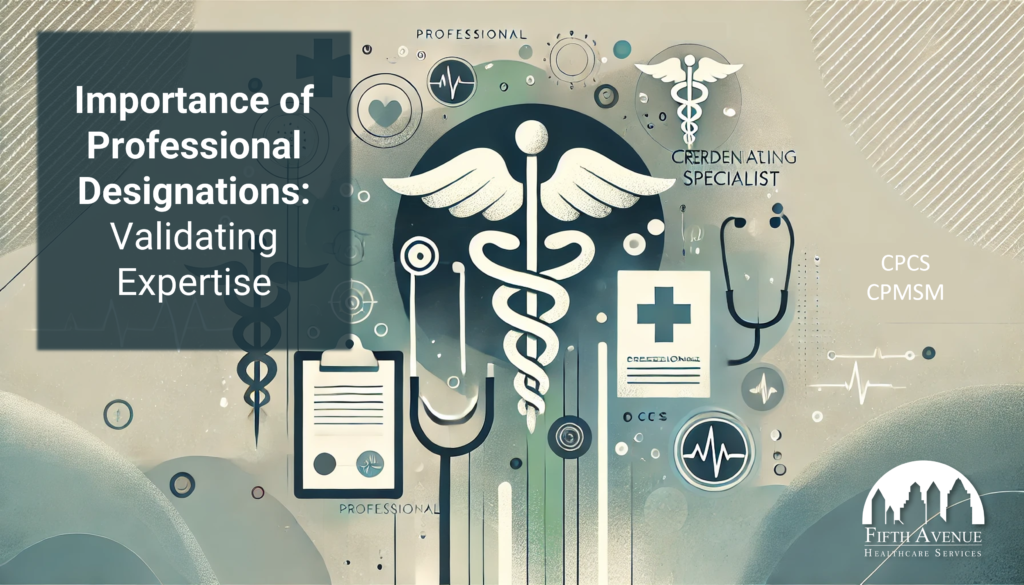
Importance of Professional Designations and Validating Expertise
These credentials validate a candidate’s knowledge, skills, and commitment to staying current with industry standards.
- Credentialing Specialist: The CPCS (Certified Provider Credentialing Specialist) designation is highly regarded within the industry. It signifies that the holder thoroughly understands provider credentialing, including regulatory requirements, best practices, and the ability to manage complex credentialing cases. This certification is particularly valuable for roles focused on maintaining and improving credentialing processes.
- Credentialing Manager: The CPMSM (Certified Professional Medical Services Management) designation is invaluable for leadership roles. It reflects advanced knowledge in medical services management and indicates that the candidate can oversee large teams, manage complex credentialing operations, and ensure compliance with healthcare regulations. This certification is often seen as a mark of excellence and leadership in the field.
Importance of Continuing Education and Professional Development
While certifications are vital, they should be complemented by ongoing professional development. The healthcare industry is constantly evolving, with new regulations, technologies, and best practices emerging regularly.
Professionals who commit to continuing education keep their skills up-to-date and demonstrate a proactive approach to their careers. Certifications like CPCS and CPMSM often require continuing education credits to maintain, ensuring that credentialing professionals remain current in their field.
Moreover, continuing education opportunities allow credentialing specialists to specialize further, gaining expertise in areas such as risk management, compliance, or healthcare administration. This specialization can be particularly valuable in roles that require a deep understanding of specific aspects of credentialing.
Conclusion of Top 4 Considerations When Hiring a Credentialing Specialist
Hiring a credentialing specialist is a strategic decision that requires careful consideration of various factors. Evaluating a candidate’s cultural fit, experience, educational background, and professional designations is crucial in finding the right individual to manage the credentialing process effectively within your healthcare organization.
Culture lays the foundation for how well a candidate will integrate and thrive within your team, while experience provides the practical skills needed for success. Education offers the theoretical knowledge that underpins professional understanding, and professional designations validate a candidate’s expertise and commitment to ongoing development.
By considering these four key factors, you can make informed hiring decisions that contribute to the long-term success of your credentialing department and overall healthcare organization. The right credentialing specialist ensures compliance and efficiency and adds value through continuous improvement and adaptation to industry changes.
More about Fifth Avenue Healthcare Services
Fifth Avenue Healthcare Services is an NCQA Credentialing Accredited family of healthcare companies. Sister companies include 5ACVO (credentialing and primary source verification specialists), Fifth Avenue Agency (MPLI and medical malpractice insurance specialists), and Primoris Credentialing Network (credentialing and provider enrollment specialists with 54+ health plan and network provider enrollment options).
Fifth Avenue Healthcare Services originally published this article here. For information on Fifth Avenue Healthcare Services, please visit FifthAvenueHealthcareService.com or Contact Us.



